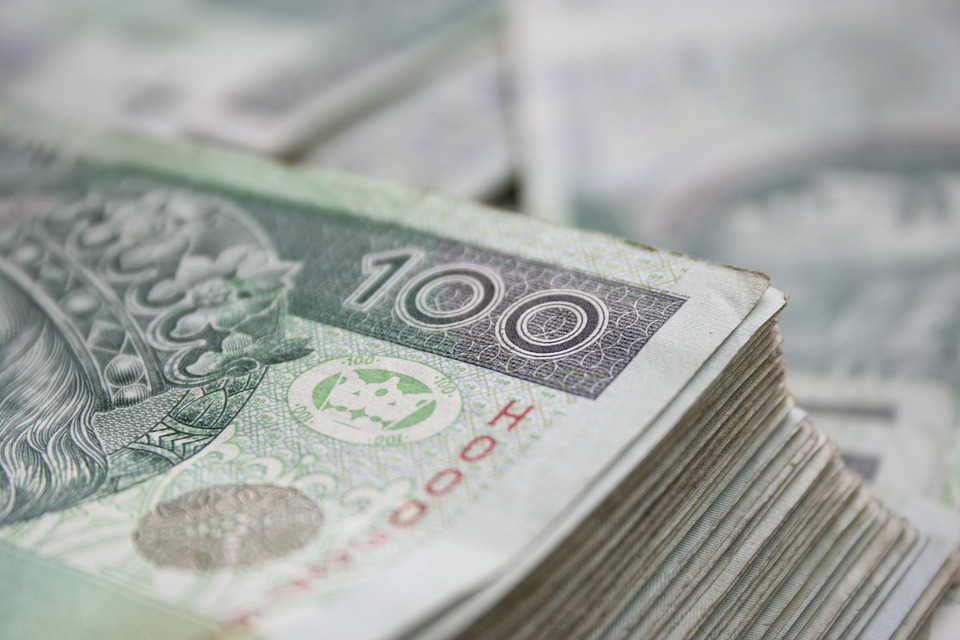Last updated Jul. 26, 2024 by Okechukwu Nkemdirim
Why You Can Still Be On The Hook For Credit Card Charges You Didn’t Make And How To Avoid It
In an increasingly digital world, the convenience of credit cards is accompanied by the risk of unauthorized charges. Despite consumer protection laws, many individuals find themselves, unfortunately, responsible for credit card charges they didn’t make. Understanding why this happens and learning how to protect yourself can help you navigate these murky waters and prevent financial loss.
Understanding Your Liability
In the United States, the Fair Credit Billing Act (FCBA) limits your liability for unauthorized credit card charges to $50. However, if the unauthorized use involves only the card number and not the physical card, you are typically not held liable. While this offers some protection, various scenarios can still leave you on the hook for unauthorized charges.
-
Failure to Report in a Timely Manner:
If you fail to report the theft or loss of your credit card promptly, you might be held liable for any subsequent unauthorized transactions. Credit card companies often expect cardholders to report suspicious activity within a specific period (usually within 30 to 60 days). -
Personal Negligence:
Leaving your credit card in a place where it can be easily stolen or shared carelessly with others can lead to unauthorized use. In cases of gross negligence, credit card companies may hold you responsible for any related charges. - Ambiguous Transactions:
Sometimes, unauthorized charges appear legitimate at first glance. If you don’t scrutinize your statement closely, these charges can go unnoticed and unreported within the required timeframe, thereby becoming harder to dispute later.
How Do Unauthorized Charges Occur?
Unauthorized charges can arise from various sources:
-
Lost or Stolen Cards:
Physical theft remains a common way for unauthorized charges to occur. If someone gets hold of your credit card, they can make in-person purchases or online transactions. -
Skimming and Cloning:
Devices known as skimmers can be attached to ATMs or point-of-sale terminals to capture card information. This data can then be used to clone your card. -
Data Breaches:
Large-scale data breaches expose millions of credit card numbers at once. Hackers sell this information on the dark web, where it can be bought and used to make unauthorized charges. -
Phishing Scams:
Scammers often use emails, phone calls, or fake websites to trick you into revealing your credit card information. - Malware:
Malicious software can infiltrate your computer or mobile device, capturing your credit card details as you enter them online.
Preventive Measures
To avoid the financial headache of dealing with unauthorized credit card charges, consider these preventive actions:
-
Monitor Your Statements:
Regularly review your credit card statements and online accounts for any suspicious transactions. Report any discrepancies immediately. -
Use Alerts and Notifications:
Most credit card companies offer services that notify you of any unusual activity. Setting up these alerts can help you catch unauthorized charges quickly. -
Secure Your Physical Card:
Keep your credit card in a safe place, and avoid sharing it with anyone. If you lose your card, report it to your credit card company immediately. -
Be Cautious Online:
Ensure that the websites you use for online shopping are secure. Look for “https” in the URL and a padlock symbol in the browser’s address bar. Avoid entering credit card information on public or shared computers. -
Use Virtual Credit Cards:
Many banks offer virtual or disposable credit card numbers for online shopping. These temporary numbers can minimize the risk of unauthorized charges. -
Update Software Regularly:
Keep your computer, smartphone, and other devices updated with the latest security patches to protect against malware and phishing attacks. -
Beware of Scams:
Be cautious of unsolicited emails, calls, or messages asking for your credit card information. Always verify the source before providing any personal details. - Activate Two-Factor Authentication (2FA):
Enable 2FA on your financial accounts to add an extra layer of security. This makes it harder for hackers to gain access even if they obtain your card information.
Steps to Take if Unauthorized Charges Appear
If you discover unauthorized charges on your credit card, follow these steps immediately:
-
Contact Your Credit Card Issuer:
Notify your credit card company or bank immediately to report the unauthorized charges. They will usually freeze your account and issue a new credit card. -
File a Dispute:
Officially dispute the unauthorized charges with your credit card issuer. Many issuers allow you to do this online, over the phone, or by mail. -
File a Police Report:
In cases of stolen credit cards or significant unauthorized charges, file a police report. This can support your dispute and help in future investigations. -
Monitor for Further Activity:
Keep an eye on your account for any further unauthorized charges. Regularly check your statements and notifications until the issue is resolved. - Update Your Security Measures:
Change your passwords and security settings on all financial accounts. Consider additional security measures like 2FA.
Why You Can Still Be On The Hook For Credit Card Charges You Didn’t Make And How To Avoid It
In an increasingly digital world, the convenience of credit cards is accompanied by the risk of unauthorized charges. Despite consumer protection laws, many individuals find themselves, unfortunately, responsible for credit card charges they didn’t make. Understanding why this happens and learning how to protect yourself can help you navigate these murky waters and prevent financial loss.
Understanding Your Liability
In the United States, the Fair Credit Billing Act (FCBA) limits your liability for unauthorized credit card charges to $50. However, if the unauthorized use involves only the card number and not the physical card, you are typically not held liable. While this offers some protection, various scenarios can still leave you on the hook for unauthorized charges.
-
Failure to Report in a Timely Manner:
If you fail to report the theft or loss of your credit card promptly, you might be held liable for any subsequent unauthorized transactions. Credit card companies often expect cardholders to report suspicious activity within a specific period (usually within 30 to 60 days). -
Personal Negligence:
Leaving your credit card in a place where it can be easily stolen or shared carelessly with others can lead to unauthorized use. In cases of gross negligence, credit card companies may hold you responsible for any related charges. - Ambiguous Transactions:
Sometimes, unauthorized charges appear legitimate at first glance. If you don’t scrutinize your statement closely, these charges can go unnoticed and unreported within the required timeframe, thereby becoming harder to dispute later.
How Do Unauthorized Charges Occur?
Unauthorized charges can arise from various sources:
-
Lost or Stolen Cards:
Physical theft remains a common way for unauthorized charges to occur. If someone gets hold of your credit card, they can make in-person purchases or online transactions. -
Skimming and Cloning:
Devices known as skimmers can be attached to ATMs or point-of-sale terminals to capture card information. This data can then be used to clone your card. -
Data Breaches:
Large-scale data breaches expose millions of credit card numbers at once. Hackers sell this information on the dark web, where it can be bought and used to make unauthorized charges. -
Phishing Scams:
Scammers often use emails, phone calls, or fake websites to trick you into revealing your credit card information. - Malware:
Malicious software can infiltrate your computer or mobile device, capturing your credit card details as you enter them online.
Preventive Measures
To avoid the financial headache of dealing with unauthorized credit card charges, consider these preventive actions:
-
Monitor Your Statements:
Regularly review your credit card statements and online accounts for any suspicious transactions. Report any discrepancies immediately. -
Use Alerts and Notifications:
Most credit card companies offer services that notify you of any unusual activity. Setting up these alerts can help you catch unauthorized charges quickly. -
Secure Your Physical Card:
Keep your credit card in a safe place, and avoid sharing it with anyone. If you lose your card, report it to your credit card company immediately. -
Be Cautious Online:
Ensure that the websites you use for online shopping are secure. Look for “https” in the URL and a padlock symbol in the browser’s address bar. Avoid entering credit card information on public or shared computers. -
Use Virtual Credit Cards:
Many banks offer virtual or disposable credit card numbers for online shopping. These temporary numbers can minimize the risk of unauthorized charges. -
Update Software Regularly:
Keep your computer, smartphone, and other devices updated with the latest security patches to protect against malware and phishing attacks. -
Beware of Scams:
Be cautious of unsolicited emails, calls, or messages asking for your credit card information. Always verify the source before providing any personal details. - Activate Two-Factor Authentication (2FA):
Enable 2FA on your financial accounts to add an extra layer of security. This makes it harder for hackers to gain access even if they obtain your card information.
Steps to Take if Unauthorized Charges Appear
If you discover unauthorized charges on your credit card, follow these steps immediately:
-
Contact Your Credit Card Issuer:
Notify your credit card company or bank immediately to report the unauthorized charges. They will usually freeze your account and issue a new credit card. -
File a Dispute:
Officially dispute the unauthorized charges with your credit card issuer. Many issuers allow you to do this online, over the phone, or by mail. -
File a Police Report:
In cases of stolen credit cards or significant unauthorized charges, file a police report. This can support your dispute and help in future investigations. -
Monitor for Further Activity:
Keep an eye on your account for any further unauthorized charges. Regularly check your statements and notifications until the issue is resolved. - Update Your Security Measures:
Change your passwords and security settings on all financial accounts. Consider additional security measures like 2FA.
[matched_content]
Short Answer
Maintaining vigilance and employing proactive security measures can significantly reduce the risk of unauthorized credit card charges. Regularly monitoring statements, setting up alerts, and implementing online security protocols can help you stay ahead and mitigate any potential financial loss from fraudulent activities.
FAQs
Q: What immediately should I do if I suspect unauthorized charges on my credit card?
A: Contact your credit card issuer immediately to report the suspicious charges. Your issuer will typically freeze your account and issue a new card.
Q: How can I ensure online shopping safety?
A: Use secure websites with “https” in the URL, enable virtual credit cards, and avoid entering your card details on public or shared computers.
Q: Are there specific tools that can help monitor unauthorized credit card activity?
A: Many credit card companies offer alert services that notify you of unusual activity. Additionally, financial management apps can track and alert you of suspicious transactions.
Q: How often should I check my credit card statements for unauthorized charges?
A: It’s advisable to monitor your credit card statements at least once a month. However, checking more frequently can help catch any issues more promptly.
Q: What is the liability for unauthorized charges under the Fair Credit Billing Act?
A: The FCBA limits your liability to $50 for unauthorized charges, provided you report them in a timely manner. If only your card number, not the physical card, is used, you may not be held liable at all.
Q: Can issuing banks deny a dispute claim?
A: Yes, banks can deny a dispute claim if they determine that the charges are legitimate or if there’s evidence of negligence on your part. Providing thorough documentation and acting quickly improves your chances of a successful dispute.
By staying informed and vigilant, you can significantly reduce your exposure to unauthorized credit card charges and better protect your financial well-being.
Short Answer
Maintaining vigilance and employing proactive security measures can significantly reduce the risk of unauthorized credit card charges. Regularly monitoring statements, setting up alerts, and implementing online security protocols can help you stay ahead and mitigate any potential financial loss from fraudulent activities.
FAQs
Q: What immediately should I do if I suspect unauthorized charges on my credit card?
A: Contact your credit card issuer immediately to report the suspicious charges. Your issuer will typically freeze your account and issue a new card.
Q: How can I ensure online shopping safety?
A: Use secure websites with “https” in the URL, enable virtual credit cards, and avoid entering your card details on public or shared computers.
Q: Are there specific tools that can help monitor unauthorized credit card activity?
A: Many credit card companies offer alert services that notify you of unusual activity. Additionally, financial management apps can track and alert you of suspicious transactions.
Q: How often should I check my credit card statements for unauthorized charges?
A: It’s advisable to monitor your credit card statements at least once a month. However, checking more frequently can help catch any issues more promptly.
Q: What is the liability for unauthorized charges under the Fair Credit Billing Act?
A: The FCBA limits your liability to $50 for unauthorized charges, provided you report them in a timely manner. If only your card number, not the physical card, is used, you may not be held liable at all.
Q: Can issuing banks deny a dispute claim?
A: Yes, banks can deny a dispute claim if they determine that the charges are legitimate or if there’s evidence of negligence on your part. Providing thorough documentation and acting quickly improves your chances of a successful dispute.
By staying informed and vigilant, you can significantly reduce your exposure to unauthorized credit card charges and better protect your financial well-being.





